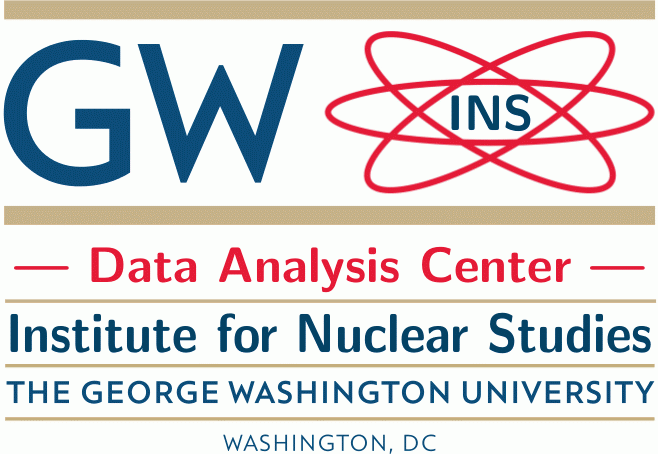
Partial-Wave Analyses at GW
Analyses From Other Sites
Contact
| Instructions |
|
The programs accessible with the left-hand side navigation bar allow
the user to access a number of features available through the SAID
program. Contact a member of our group if you are unfamiliar with the
SSH version. If you enter choices which are unphysical, you may still
get an answer (in accordance with the `garbage in, garbage out' rule).
Please report unexpected garbage-out to the management.
Note: These programs use HTML forms to run the SAID code. If unfamiliar with the options, run the default setup first. The output is an (edited) echo of an interactive session which would have resulted had you used the SSH version. If the default example fails to clarify the specific task you have in mind, we can help (just send an e-mail message).
All programs expect energies in MeV units. All of the solutions
and potentials have limited ranges of validity. Some are unstable
beyond their upper energy limits. Extrapolated results may not make
much sense.
|
| ACKNOWLEDGMENTS |
|
The INS Data Analysis Center
is partially funded by the
U.S. Department of Energy,
and the
Research Enhancement Funds of
The George Washington University,
with strong support from the GW
Virginia Science and Technology Campus and
technical support from Dr. G.A. MacLachlan.


|
Go to Top